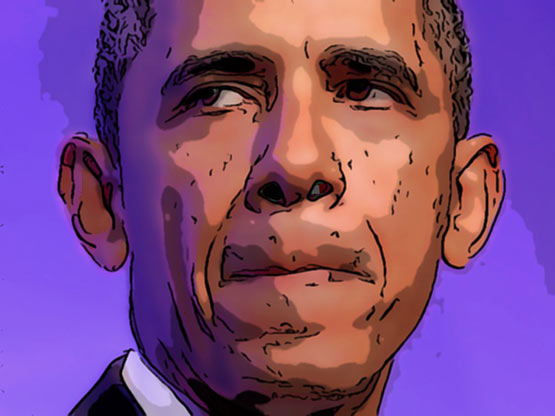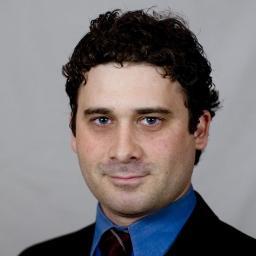
President Barack Obama's last-minute drive for a foreign-policy legacy is making U.S. allies nervous about their own security. Several allied governments have lobbied the administration not to change U.S. nuclear-weapons policy by promising never to be the first to use them in a conflict.
The governments of Japan, South Korea, France and Britain have all privately communicated their concerns about a potential declaration by Obama of a "no first use" nuclear-weapons policy for the United States. U.S. allies have various reasons for objecting to what would be a landmark change in America's nuclear posture, but they are all against it, according to U.S. officials, foreign diplomats and nuclear experts.
Japan, in particular, believes that if Obama declares a "no first use" policy, deterrence against countries such as North Korea will suffer and the risks of conflict will rise. Japanese Prime Minister Shinzo Abe personally conveyed that message recently to Adm. Harry Harris Jr., the head of U.S. Pacific Command, according to two government officials.
U.S. allies in Europe have a separate, additional concern. They don't want any daylight between their nuclear policies and those of the United States, especially since Britain, France and the United States all are permanent members of the U.N. Security Council. In the case of an emergency, those differences could cause real coordination problems.
"It's my understanding that the defense ministries of many of our allied nations have lobbied the White House against changing this doctrine, and there's been particularly strong opposition from the U.K., France, Japan and South Korea," said Joe Cirincione, president of the Ploughshares Fund, an anti-proliferation advocacy group that supports the policy change. "We have an interest in creating an international norm that no one should use nuclear weapons first. The allies lobbying against it are nervous nellies."
The White House is considering declaring a "no first use" nuclear-weapons policy as one of several ways Obama can advance his non-proliferation agenda in his final months in office. Several options are under debate, and no final decisions have been made on "no first use."
The president wants to roll out announcements on nuclear policy in September to coincide with his final appearance at the U.N. General Assembly, officials said. One administration official told me that, in part because of allied concerns, the internal push on "no first use" was not gaining traction.
National Security Council spokesman Ned Price told me that the administration is "always looking for additional ways to achieve progress" on Obama's Prague agenda -- named for the disarmament aspirations the president set out in his April 2009 speech in the Czech capital -- "while maintaining a credible deterrent for the United States, our allies and partners."
Foreign officials from multiple allied countries said that their governments were upset about a lack of consultation on the possible declaration of a "no first use" policy, which would affect all allies who live under the U.S. nuclear umbrella. Many said that allied governments first learned about the policy debates in The Post.
"While the goal of a 'no first use' policy is correct -- to never be the first country to launch a cataclysmic nuclear strike -- doing so unilaterally could run the risk of weakening our allies' confidence in our security guarantees. This would not be in our interest," said Joel Rubin, a former Obama administration State Department official.
Diplomats from allied countries argued that if the United States takes a nuclear first strike off the table, the risk of a conventional conflict with countries such as North Korea, China and Russia could increase. Regimes that might refrain from a conventional attack in fear of nuclear retaliation would calculate the risks of such an attack differently.
Moreover, allied governments don't believe that a unilateral "no first use" declaration would necessarily help to establish an international norm, because there's no guarantee that other countries would follow suit. They also believe that nuclear weapons play a role in deterring chemical and biological attacks.
Republicans in Congress also strongly oppose the change and are already upset that the Obama administration plans to seek a U.N. Security Council resolution calling on all states to refrain from nuclear testing. They don't believe such moves are appropriate this close to the arrival of a new administration and without legislative advice and consent.
The Obama administration first expressed its desire to move the United States to "no first use" in a 2010 policy document that stated that conditions for such a move were not ripe but pledged that the America would "work to establish conditions under which such a policy could be safely adopted." Since 2010, the world has only grown less stable. Nevertheless, proponents of the new policy say concerns about the change are unfounded.
"North Korea understands that any conventional attack will be met with a devastating response, but it doesn't have to be a nuclear response," said Arms Control Association executive director Daryl Kimball. "If we don't need to use nuclear weapons to retaliate against North Korea, why should we?"
The same question could be asked the other way. If all U.S. allies believe a "no first use" policy weakens deterrence and increases the risk of armed conflict without producing any benefits, why should we do it? Advancing Obama's personal legacy isn't a good enough reason.
Comment by clicking here.
Josh Rogin is a columnist for the Global Opinions section of The Washington Post. He writes about foreign policy and national security.
Previously:
• 07/26/16: Hillary must convince voters the world is not falling apart
• 07/12/16: House GOP to pass new Iran sanctions
• 07/05/16: Obama can't ignore Russia, or its increasingly horrendous behavior
• 06/28/16: Russia is harassing US diplomats all over Europe
• 05/18/16: Hillary plans to use Iran playbook on N. Korea
• 05/12/16: Republicans want Trump to 'evolve' on foreign policy
• 05/11/16: Washington doesn't work the way people think it does. And when the public gets a peek, there's a lot of outrage
• 04/26/16: When it comes to Russia, what's good for the Trump Organization isn't necessarily good for U.S.
• 04/19/16: U.S. is scrambling to keep Saudis in the fold
• 03/29/16: Russia 'weaponizing' migration to destabilize Europe
• 03/08/16: National Security all-star team backs Rubio
• 03/07/16: Hillary takes aim at another government watchdog
• 02/18/16: Congress wary of Chinese deal for Chicago Exchange
• 02/16/16: Obama weighs looser rules for Iranian travelers
• 02/15/16: Revealed: Hillary building her own national security council
• 02/02/16: Revealed: The Trump foreign policy doctrine
• 01/27/16: Bergdahl defense could call his loudest foe, Trump
• 01/07/16: Why when North Korea forces Obama's Washinton to pay attention all the U.S. government can do is grieve
• 01/06/16: Obama's Mideast balancing act tilts to Iran
• 12/28/15: Assad is reaching out to Washington power brokers
• 12/23/15: U.S. quietly negotiating to free Americans in Syria
• 12/21/15: Russian arms in Syria keep U.S. grounded
• 11/17/15: Assad's Paris win
• 11/12/15: The Pentagon's lonely war against Russia and China
• 11/05/15: Iran, Saudi Arabia clash inside Syria talks
• 10/28/15: U.S. is driving Mideast allies to Putin
• 10/26/15: Source of Hillary's Libya data a mystery
• 10/21/15: Team Jeb calls out Trump for trashing Freedom Tower
• 09/23/15: Xi visit marks downturn in US-China relations
• 08/31/15: Walker stakes his territory on foreign policy
• 06/08/15: Hillary just lost one of her only selling points
• 03/02/15: An Obama deal with Iran could die with his days in office
• 02/23/15: Shock, awe and Jeb Bush's foreign policy dream team
• 01/22/15: At GOP pow-wow 2016 front-runners pledge, lay out vision to restore America's world leadership role


 Contact The Editor
Contact The Editor
 Articles By This Author
Articles By This Author
